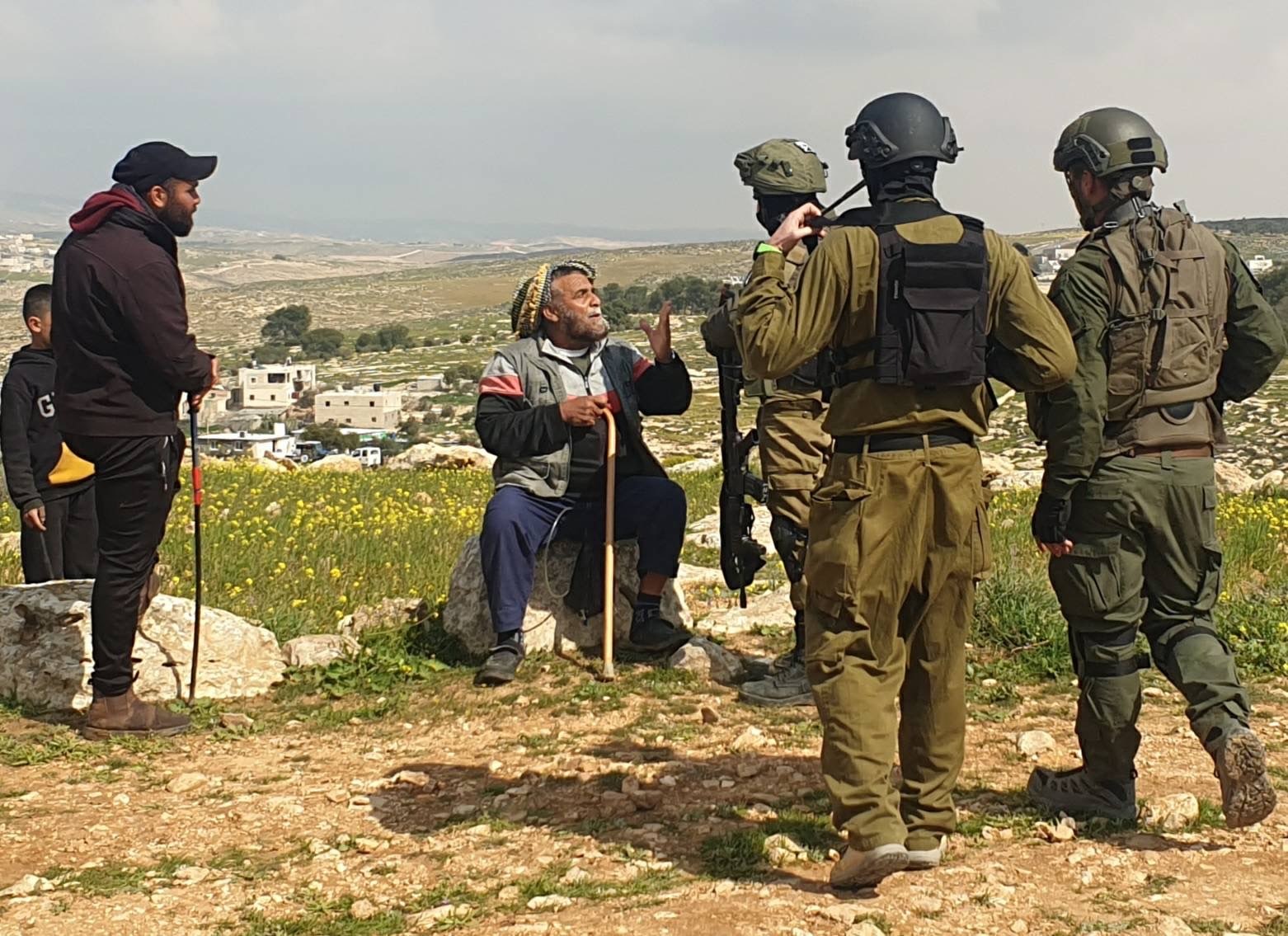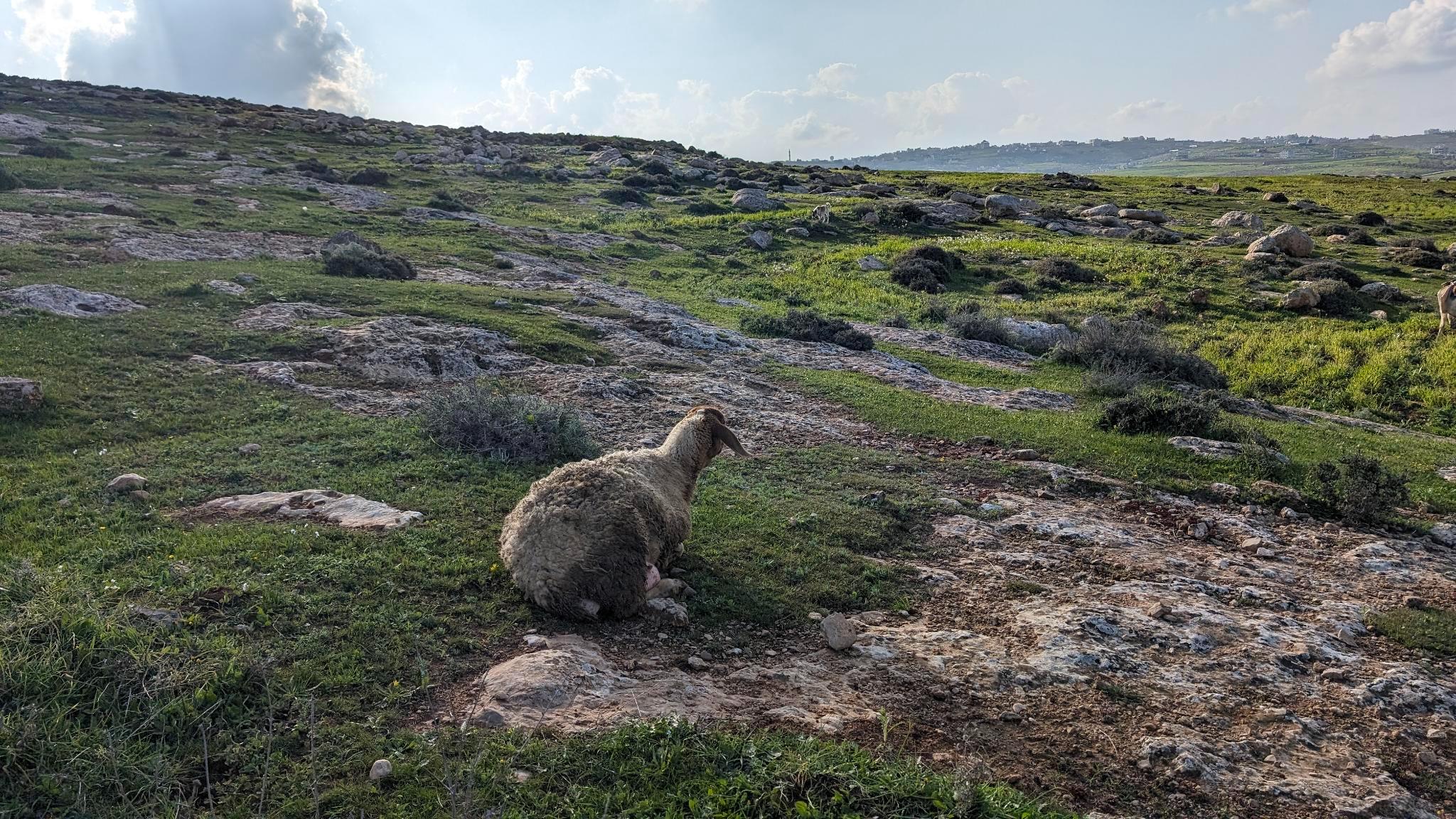Tag: Masafer Yatta
-

More Attacks on Shepherds in Masafer Yatta
24 February 2024 | International Solidarity Movement | Masafer Yatta On Wednesday, February 21st, a group of armed and masked settlers and occupation army soldiers violently attacked a group of Palestinian women, children and men grazing their sheep in Humra close to A-Tuwani, in Masafer Yatta. The soldiers aggressively drove the shepherds out of their…
-

Illegal Settlers Attack Shepherding family in Masafer Yatta
21 February 2024 | International Solidarity Movement | Masafer Yatta On Tuesday, February 20th, armed illegal Israeli settlers attacked a shepherding family and their sheep near the villages of Al Jawaya and Tuwani, in Masafer Yatta. The settlers reportedly let their dog loose on the sheep, injuring three, discharged a weapon, and hit a child.…
-

Continued Settler Appropriation of Community Garden in At-Tuwani
17 February 2024 | International Solidarity Movement | Masafer Yatta On February 14, for the second time in 3 days, a settler from an illegal outpost west of Ma’on settlement, entered At-Tuwani, in Masafer Yatta, to do illegal drilling and construction work in the Youth of Sumud garden. Five heavily armed and masked settlers in…
